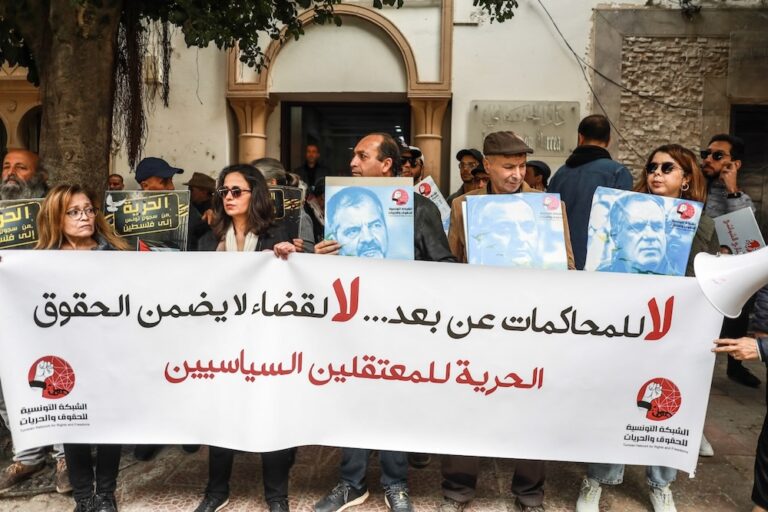A judge called for Tunisia TV's closure after it aired an interview with a Tunisian Communist Labor Party leader, in violation of election regulations.
(ANHRI/IFEX) – Cairo, 10 October 2011 – ANHRI condemns a ruling calling for the closure of the satellite channel Tunisia TV. ANHRI also condemns the 9 October 2011 attempt by over 300 extremists to torch the headquarters of the satellite channel Nesma. Nesma TV was targeted for broadcasting “Persepolis”, a French animated film, dubbed into Arabic, that refers to the Iranian revolution. The film was considered “detrimental” to the Islamic religion.
On 9 October, a judge in charge of state disputes issued an order to shut down Tunisia TV after the channel broadcast an interview with Hemma Al-Hammami, leader of the Tunisian Communist Labor Party, following the launch of the electoral campaign. The interview was considered to be in violation of a ruling prohibiting the distribution of “political propaganda” ahead of the 23 October elections of the constituent assembly, which will be tasked with drafting the new Constitution. It is worth noting that Tunisia TV began broadcasting in March with a foreign licence, as it had not been able to obtain a licence from the Independent Authority for Media Reform.
In another incident, on 9 October over 300 extremists gathered near the headquarters of Nesma TV in an attempt to set the station on fire after the airing of “Persepolis”. The movie tells the story of an Iranian girl from a liberal family experiencing the 1979 Iranian revolution which resulted in the toppling of the Shah of Iran. In the film, the girl escapes to Austria, fearing the oppression of the fundamentalists, and continues her studies. Extremists found that the movie negatively portrayed the Islamist movement.
It is worth noting that Nesma TV encountered a similar attack previously, following its broadcast of an Iranian series portraying one of the prophets in the past Lunar month of Ramadan. In addition, extremists vandalised a movie theater in June, arguing that a film that was being screened supported atheism.
“We are against any law or procedure preventing the media from exercising its role. There are many ways in which people who do not adhere to media standards can be punished. Confiscation and exclusion, however, are not one of them. On the other hand, the authorities have to address the growing extremist trend which tries to impose its guardianship on society in an unacceptable manner. The transitional phase is a crucial time for entrenching public freedoms, particularly freedom of opinion and expression as an inalienable human right,” said ANHRI.


